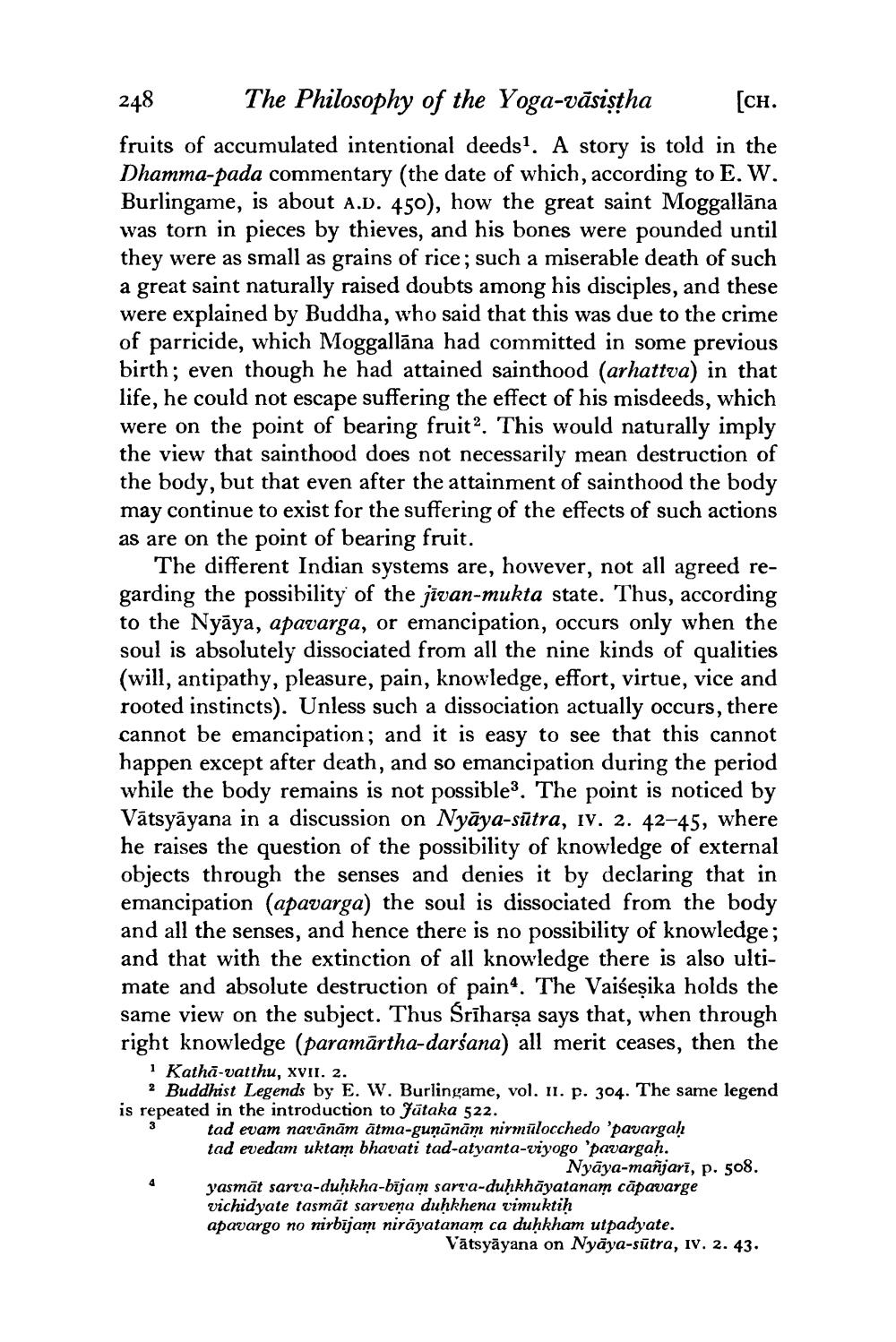________________
248 The Philosophy of the Yoga-vāsistha (ch. fruits of accumulated intentional deeds. A story is told in the Dhamma-pada commentary (the date of which, according to E. W. Burlingame, is about A.D. 450), how the great saint Moggallāna was torn in pieces by thieves, and his bones were pounded until they were as small as grains of rice; such a miserable death of such a great saint naturally raised doubts among his disciples, and these were explained by Buddha, who said that this was due to the crime of parricide, which Moggallāna had committed in some previous birth; even though he had attained sainthood (arhattva) in that life, he could not escape suffering the effect of his misdeeds, which were on the point of bearing fruit. This would naturally imply the view that sainthood does not necessarily mean destruction of the body, but that even after the attainment of sainthood the body may continue to exist for the suffering of the effects of such actions as are on the point of bearing fruit.
The different Indian systems are, however, not all agreed regarding the possibility of the jivan-mukta state. Thus, according to the Nyāya, apavarga, or emancipation, occurs only when the soul is absolutely dissociated from all the nine kinds of qualities (will, antipathy, pleasure, pain, knowledge, effort, virtue, vice and rooted instincts). Unless such a dissociation actually occurs, there cannot be emancipation; and it is easy to see that this cannot happen except after death, and so emancipation during the period while the body remains is not possible3. The point is noticed by Vātsyāyana in a discussion on Nyāya-sūtra, iv. 2. 42-45, where he raises the question of the possibility of knowledge of external objects through the senses and denies it by declaring that in emancipation (apavarga) the soul is dissociated from the body and all the senses, and hence there is no possibility of knowledge; and that with the extinction of all knowledge there is also ultimate and absolute destruction of paino. The Vaiseșika holds the same view on the subject. Thus Śrīharşa says that, when through right knowledge (paramārtha-darsana) all merit ceases, then the
1 Kathā-vatthu, XVII. 2.
? Buddhist Legends by E. W. Burlingame, vol. 11. P. 304. The same legend is repeated in the introduction to Jūtaka 522.
tad evam navānām ātma-guņānām nirmūlocchedo 'pavargah tad evedam uktam bhavati tad-atyanta-viyogo pavargah.
Nyāya-mañjarī, p. 508. yasmāt sarva-duhkha-bījam sarta-duḥkhāyatanam cāpavarge vichidyate tasmāt sarveņa duḥkhena vimuktih apavargo no nirbījam nirāyatanam ca duḥkham utpadyate.
Vātsyāyana on Nyāya-sūtra, IV. 2. 43.




